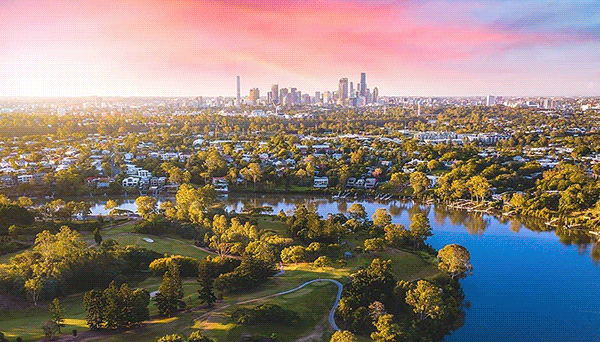Hospitality industry needs to transform ahead of 2032 Olympics

Queensland's hospitality sector requires a significant transformation that should include tax reforms, visa streamlining, and rebranding of roles.
According to Restaurant & Catering Industry Association CEO Suresh Manickam a revamp would position Brisbane as a vibrant 24/7 city ahead of the 2032 Olympic Games.
Manickam says Brisbane needs more accessible late-night venues to support this vision and establish itself as a true global destination.
Expanding South Bank’s iconic bougainvillea-lined pathways across the city could provide safe connections to key entertainment hubs, while affordable, round-the-clock public transport would foster a thriving nightlife comparable to the world’s leading cities.
The industry must also undergo structural changes, including tax incentives, simplified international worker visa processes, and a fresh approach to promoting hospitality careers to attract skilled professionals committed to long-term growth.
“We have to have precincts that are open for extended hours and it’s not just the CBD, it’s areas that are part of the greater Brisbane area,” he said.
“If we have a precinct that we’re trying to say is a good entertainment or hospitality precinct, is it well lit? Does it foster and encourage foot traffic? Is it friendly for young people, old people, females? Because we want everyone to enjoy and feel safe and secure.”
Manickam said Brisbane should take inspiration from cities that never sleep, such as Singapore, Tokyo and Beijing, a sentiment shared by Howard Smith Wharves CEO Luke Fraser.
“It’s a combo of great public transport that runs reliably and late, but then that has to be supported by a high number of other methods as well, like paths for walking, scooters and bikes,” Fraser said.
Fraser recommended taking advantage of the Brisbane River to link major late-night and entertainment precincts.
“The river is a great opportunity for connectivity,” he said. “There’s Howard Smith Wharves, Queen’s Wharf, South Bank, the new Dexus Pier coming, down to Hamilton and Bulimba. It’s a great way to move people through those precincts and it’s a wow factor. There’s not a more beautiful way to travel around the city.”
Brisbane City Council envisions transforming the city into the "Barcelona of the southern hemisphere," with 24/7 transport and dynamic nightlife precincts.
Queensland's new Night-Life Economy Commissioner, John ‘JC’ Collins, emphasised the importance of safe late-night districts for the 2032 Olympic Games but acknowledged the cultural shift required to make them viable.
"As a business owner, you’d like to stay open late, but if you’re losing money because no one’s there, you’re going to close," Collins said, referencing Queenslanders’ tendency to turn in early. He added that adequate and affordable transport would be key to encouraging more people to embrace a late-night lifestyle.
A thriving night-time economy also hinges on addressing the state's critical hospitality skills shortage. With a dire need for chefs, sommeliers, waitstaff, and other skilled professionals, industry leaders are calling for a reimagining of the sector's image. To attract fresh talent, hospitality must be marketed as an exciting, rewarding career rather than a temporary job.
"This starts with showcasing hospitality as a viable and rewarding career path," said Phillip Di Bella of the Coffee Commune, advocating for a shift in perception to make the industry “fun and sexy.”
Jonathan Jackson, 25th November 2024







